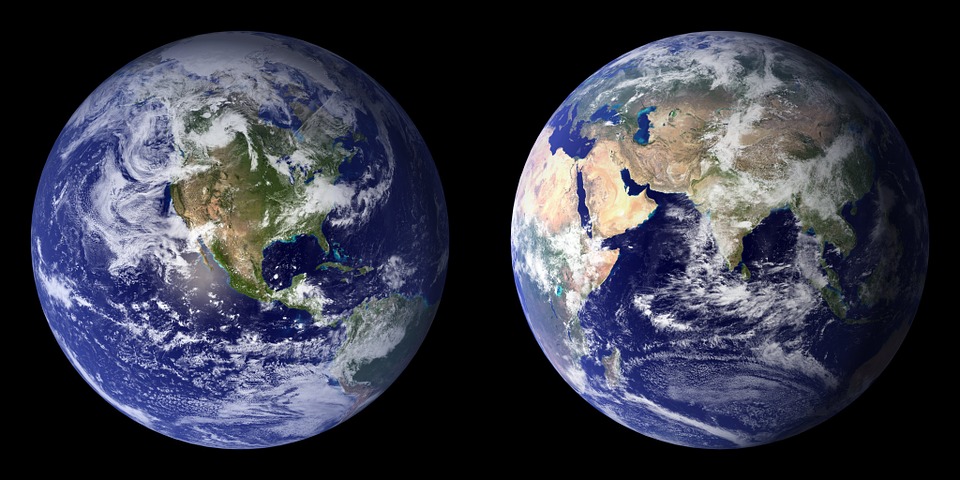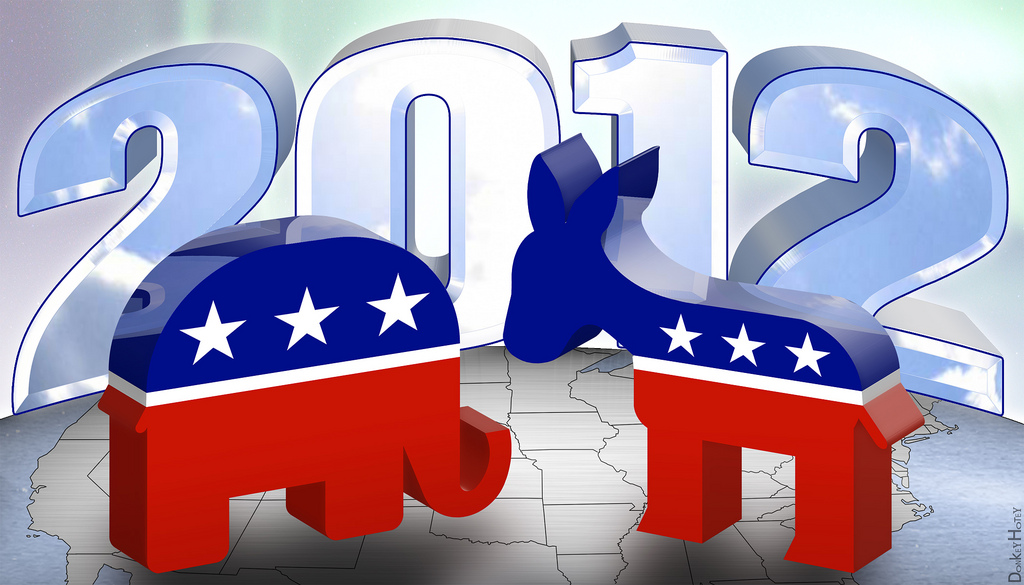Human activities are on path to destroy the only known environment capable of sustaining life. Our consumption and depletion rate of natural resources will lead us to a point where there will be no resources to trade, no need for economies to develop, no need for society to progress or for politics to rule—in essence, no need for us. Our species is entering a new domain: a new geological epoch known as Anthropocene, in which human activities detrimentally impact Earth’s geology and ecosystems. We are literally entering the age of humans.
While the Anthropocene epoch signals a threat to the existence of our species, it also signals a sense of hope—hope for potential solutions, change, and a new enlightenment. The drastic consequences we face provide us with an opportunity to move away from this destructive era and into a new generation of thinking and living based soundly in environmental ethics. This philosophy seeks to recognize humans and planet Earth as a cohesive living ecosystem that works in balance, towards sustainability and the maintenance of the natural ecological cycle.[1] For the sake of the Earth and all its biological inhabitants, we must shift the global social norms that govern our societies towards the ideology of environmental ethics.
Defining the Problem
Global Climate Change (GCC) is the most prevalent and systematic threat facing mankind.[2] The year 2018 marked a major milestone as the fourth warmest year on record, following 2017, 2016, and 2015.[3] For the past 30 years, our world has seen global temperatures increase at an unprecedented rate, global species fall victim to a sixth mass extinction, and natural resources depleted beyond restoration due to deforestation and disruption of the nitrogen and phosphorus cycles.[4] Overconsumption, overpopulation, and pollution threaten the health not only of our oceans, atmosphere, and land, but also of our global social structure through GCC-related social, political, and economic tensions.
Currently, GCC is exacerbated through the energy trapped by man-made pollution, the level of which is now equivalent to exploding 400,000 Hiroshima atomic bombs per day.[5] Pollution is constantly spewed into the thin shell of our atmosphere, as if it were an open sewer.[6] The recent Sixth Assessment Report by the Intergovernmental Panel on Climate Change (IPCC) concluded that we will need to take rapid and unprecedented action to stay within 1.5 degrees Celsius of pre-industrial levels, beyond which global health, livelihood, food, and basic human security are at serious risk.[7]
Often overlooked is the fact that GCC stretches far beyond the issue of CO2 emissions and a warming planet. GCC is the byproduct of the way we function and structure our societies—from poverty, water scarcity, and biodiversity loss to capitalistic ideals, social justice, and systematic oppression. It is a physical manifestation of the social norms that govern our nations. To address GCC, humanity must change the way we structure our globalized world by adopting a new social paradigm. We can no longer view the planet in a linear way, where spewing millions of tons of CO2 into the atmosphere is believed to have zero consequences. It’s the essence of the First Law of Thermodynamics that matter cannot be created nor destroyed, and so it logically follows that man-made environmental pollution has tangible consequences that are either disseminated to other parts of the world (as seen with plastic pollution) or other ecosystems (as seen with agricultural runoff pollution).
Because GCC affects nearly all aspects of life, if we have any chance of solving this existential threat, we need to reshape our social norms.
How did we get here?
While scholars have put forward several explanations for GCC, including failure of governmental coordination and laissez faire capitalism, the one thing that these arguments all have in common is human behavior.[8] And it is a change in human behavior—an acknowledgement, empathization, and understanding of the intrinsic value of all living things— that is advocated by the philosophies of environmental ethics.
Human behavior is the underlying force driving our global society. This is illuminated through Talacott Parson’s sociological theory of human behavior, known as structural functionalism.[9] This theory considers values to be the core of culture because values give meaning and direction to people’s actions and how they treat themselves and others. These values produce “cultural traits” that shape social norms and become “institutionalized patterns”. Our current norms have taken a toll on Earth’s environmental integrity, leading us to GCC. These damaging values have been passed down through generations and continue to manifest in dangerous ways. These social norms have, for the most part, been based in traditional ethical thinking that is anthropocentric (i.e. human-centered)—the worldview responsible for GCC.
Our current social norms concerning the environment can be revealed through Aristotle’s view on nature, where he maintains that “nature has made all things for the sake of man” and that the value of non-human things in nature is merely instrumental value, for human use only.[10] Western philosophy has been fundamentally concerned with the controlling of nature to achieve progress in a capitalistic, over-consuming world. This has positioned the human race to adopt the principle of basic human chauvinism.[11] Environmental philosopher Richard Sylvan defines basic human chauvinism as a core principle of Western ethical systems, under which our collective species is seen as coming first and all other beings as only tangible for the sake of their instrumental use to humanity. With such an undertaking, nature and all other life forms have been destroyed, altered, or depleted for human purposes in the name of “development and progress.”
A Hope for the Future:
Tackling global climate change will come down to reshaping the norms underlying human behavior and our relationship with nature. Environmental ethics seeks to do just that by providing the moral case for sustainability by bestowing rights to nature. Yet just as it required generations to implement moral philosophy through international human rights and humanitarian law, success in developing seemingly utopian ideals of environmental ethics for the natural world will pose its own challenges.
Sylvan and John O’Neill argue for environmental ethics that consider our current conduct towards the natural environment morally wrong, in the same way inflicting harm on other human beings is considered morally wrong. In O’Neill’s The Varieties of Intrinsic Value, he states that environmental ethics require that “non-human beings and states of affairs in the natural world have intrinsic value.”[12] Thus, assigning intrinsic value to the natural world would make it morally wrong for our behavior to damage or cause the environment harm. By placing intrinsic value on ecosystems and non-human beings, we create a systematic orientation, in which the flourishing of ecosystems is inseparable from the flourishing of mankind.[13]
These philosophies of environmental ethics, including the Deep Ecology Movement (DEM), propose to do the same for the natural world as philosophies of natural rights did for human society (with the adoption of current human rights laws)—on perhaps an even larger, life-saving scale. In this way, future generations will look back at our time of resource exploitation and planetary destruction as a relic of a less-advanced and immoral age.
Assigning intrinsic value to the environment led conservationist Aldo Leopold to his most enduring idea, the land ethic, which seeks to establish humans’ moral responsibility to the natural world.[14] Currently, there is no ethic that addresses humans’ relation to Earth’s environment. The land ethic seeks to help us judge whether human behavior is “right” or “wrong” with respect to humanity’s impact on nature. It is thus affirmed that it is “right” to allow nature to continue to exist in its natural state, and “wrong” to change or degrade this natural state through human action. For example, Leopold states that “a thing is right when it tends to preserve the integrity, stability and beauty of the biotic community. It is wrong when it tends otherwise.”[15] This focuses on humanity’s duty to sustain the ecological community, not degrade it. With current trends of environmental degradation and GCC, humans have clearly missed this mark.
The land ethic simply enlarges the boundaries we place on human responsibility to include Earth’s collective ecosystems. Establishing previously unacknowledged rights to nature, the land ethic forces humans to reimagine their role as conquerors of the natural world and to recognize that we are merely fellow members within it. With this perspective, it becomes virtually impossible to view acts of environmental degradation as anything other than morally and ethically wrong—finally conferring rights to nature.[16]
This reasoning leads to the Deep Ecology Movement (DEM), a more radical ideology of the philosophy of environmental ethics pioneered by Arne Naess. The DEM seeks to spread awareness of these ideas to include the world as a whole, known as an ecocentric viewpoint. Ecocentrism places intrinsic value in all aspects of nature, not just humanity, and adopts a broader view of the world than the current global thinking of anthropocentrism.[17]
Earth relies on the stability of our complex and interconnected ecosystem, about which we continue to learn more through scientific discoveries, satellite imagery, and technological innovations. For example, in the context of the DEM, a honeybee’s responsibility and purpose for living is fulfilled by performing its duty to provide for the needs of itself and its ecosystem, the forest. This creates a natural cycle that provides the forest with the necessary structure to flourish, which enables the trees in the forest to perform their duty: to provide oxygen for all living beings. This is only a small picture in the larger context of ecosystems, but it presents how even a small part of an ecosystem holds value against the whole. It would be immoral to deny any part of an ecosystem intrinsic rights, as each part plays a role in life’s functionality.
Humanity is in this together:
If society were to establish this ethical eco-consciousness, a new social norm would be adopted that provides an appreciation of all life. This change can only be accomplished through education, which plays a key role in developing social norms. Through an educational framework of environmental ethics, humanity will be able to take the necessary steps to ensure that international action properly addresses the state of environmental degradation in the 21st century.[18] By doing so, society will acknowledge the fact that human beings are not dominant, Earth is not for homo-sapiens alone, and that the protection of natural environments serves the interests of all living species, including—but not restricted to—our own. It may finally put aside cultural and political differences and set an agenda that brings civilization together in harmony, fighting for one common goal: the existence of life as we know it.
The world is running out of time, and eco-conscious individuals are running out of patience. Ultimately, this existential crisis comes down to three exceptionality important questions, as expressed by former Vice President of the United States, Al Gore: Must we change? Can we change? Will we change?[19] And to all three, I would answer a resounding yes.
References
[1] Whitman, Walt. “Ecosystems and how it relates to Sustainability.” University of Michigan. October 20, 2017. Accessed February 4, 2019. https://globalchange.umich.edu/globalchange1/current/lectures/kling/ecosystem/ecosystem.html
[2] Sengupta, Somini. “Biggest Threat to Humanity? Climate Change, U.N. Chief Says.” The New York Times. March 29, 2018. Accessed October 20, 2018. https://www.nytimes.com/2018/03/29/climate/united-nations-climate-change.html.
[3] Hausfather, Zeke. “State of the Climate: 2018 set to be fourth warmest year despire cooler start.” Carbon Brief, Clear on Climate. August 1, 2018. Accessed October 21, 2018. https://www.carbonbrief.org/state-of-the-climate-2018-set-to-be-fourth-warmest-year-despite-cooler-start
[4] Jamail, Dahr. “Sixth Mass Extinction Ushers In Record-Breaking Wildfires and Heat.” Truthout. August 20, 2018. Accessed October 20, 2018. https://truthout.org/articles/sixth-mass-extinction-ushers-in-record-breaking-wildfires-and-heat/.
[5] Gore, Albert Arnold, Jr. “The Climate Reality Project.” Speech, The Climate Reality Project Leadership Training Corps, California, United States of America, Los Angeles, August 24, 2018.
[6] Ibid.
[7] Allen, Myles., Babiker Mustafa,. Et al. “Global Warming of 1.5°C, Summary for Policy Makers.” Intergovernmental Panel on Climate Change. October 6, 2018. Accessed October 7, 2018. http://report.ipcc.ch/sr15/pdf/sr15_spm_final.pdf.
[8] Klein, Naomi. “This Changes Everything: Capitalism vs. the Climate.” New York: Simon & Schuster, 2014.
[9] Parsons, Talcott. The Structure of Social Action. McGraw-Hill Book Company, Inc, 1937.
[10] Aristotle. “Politics.” The Internet Classics Archive. 350 b.c.e. Accessed October 25, 2018.
http://classics.mit.edu/Aristotle/politics.1.one.html.
[11] Keller, David R. Environmental ethics: the big questions, 100. Chichester, West Sussex: Wiley-Blackwell. 2010.
[12] Ibid.
[13] Ibid.
[14] Leopold, Aldo. “The Land Ethic.” In A Sand County Almanac. New York: Oxford University Press,
[15] Ibid.
[16] Ibid.
[17] Cryer, Paul. Kopnina, Helena, et al. “Why ecocentrism is the key pathway to sustainability.”The Millennium Alliance for Humanity and the Biosphere. July 4, 2017. Accessed October 21, 2018.
[18] Keller, David R. Environmental ethics: the big questions.
[19] Gore, Albert Arnold, Jr. “The Climate Reality Project.” Speech, The Climate Reality Project Leadership Training Corps, California, United States of America, Los Angeles, August 24, 2018.



